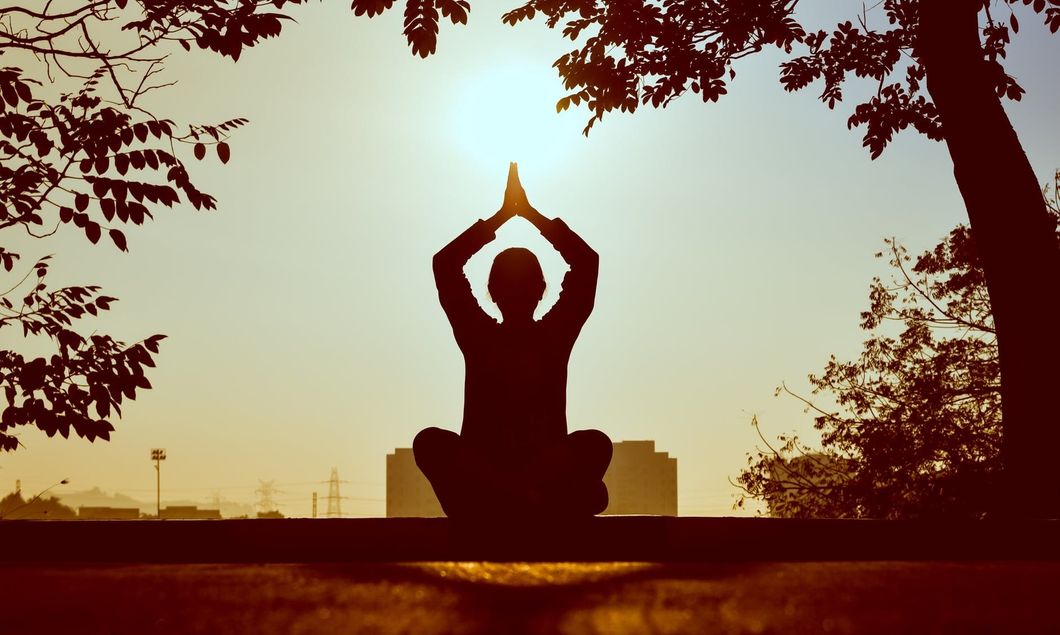My fingers curled gently around the soft and bright grass that cradled my loose body as I basked in the peace of my just-completed meditation. The sun twirled its way through the leaves above to reach down and touch my soft face, clear and confident in my body as it continued to rest from the long walk to the park I had selected for meditation. Somewhere in the back of my head, an idea lazily formed for a way to use my fresh vegetables to create a wholesome and uniquely interesting vegetarian dinner later.
With summer employment offering fulfillment and happiness, fewer hours than my usual, and a living wage, I had discovered sufficient sleep, time to exercise and meditate, the resources to cook nutritious meals, and the energy for reading intriguing books of novel ideas, for a facial skin routine, and for self-exploration.
Had I finally done what every 21st-century person suggested, and made my own wellness a priority? Was I finally taking care of myself, as we are told we all must do? I certainly did feel better. But I had only achieved this once I was placed in a position in which I could achieve it. As previously mentioned, much of my self-improvement was simply based on my employment position (which was already largely based on my education, which was also based on a social background in which I was expected to go to college). Apparently, I needed all of this self-care to be a good human, but it hadn't been possible when the situation forced me to put other needs first. Quality self-care is often linked directly to not only success but even morality. Yet it is a position to which we must gain access. And not everybody can gain access to our current system.
Of course, this wasn't enough anyway. To really take care of myself, the listicles and headlines and celebrities would insist, I should also decorate my space in a smoothly minimalist style with clever accent pieces that cost more than all the clutter of my house combined. I should purchase an endless list of expensive organic products with breezy colors and thin lettering on their sleek tubes. I should make perfect smoothies every morning and drink them outside after completing a long session of yoga as well as professionally-perfected workouts to strategically tone certain sections of my body. I should take extensive vacations abroad, regularly. I should attend classes in the community. I should be on some vegan ketogenic diet while also getting all of my nutrients with the help of dieticians and supplements and costly bizarre alternatives.
It all sounds pretty great. A lot of it is great. But to achieve any of it is an achievement, a word that we have also rightly come to associate with position. And, like the majority of this world, I am in no position to dedicate the money, energy, time, and space in my list of priorities to live that kind of life. This is where the movement for self-care goes too far. It has become, in fact, an industry. What started as an attempt to encourage the good kind of individualism, where we each matter uniquely, where we recognize our inherent dignity, became a marketing campaign and a huge status symbol. Check out Taffy Brodesser-Akner's latest piece for the New York Times, or Sady Doyle's expansion of the argument for Medium. These images of the perfectly well person to whom we should all aspire are really a little bit ridiculous and even destroy our own sense of rightness since we cannot reach their levels. They seem at peace, sure, but we often can't realistically "take care of ourselves" in such a manner. And to suggest, to expect, anyone to do so is to blind ourselves to the privilege that comes with such activity.
As a culture, we have rightfully come to a place where we believe in taking care of the self. But our socioeconomic system still makes self-care a privilege. And our role models have turned self-care into a spectacle of unattainability that, if anything, sends us backward.
I'm so fortunate to be in a position where I can safely walk to a beautiful community space and enjoy uninterrupted meditation. And I recognize that in the world in which I live, I can't demand that others do the same until we become a world where they can.
















